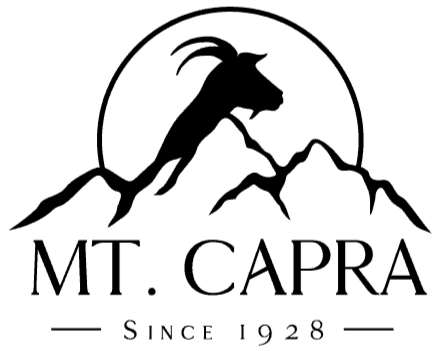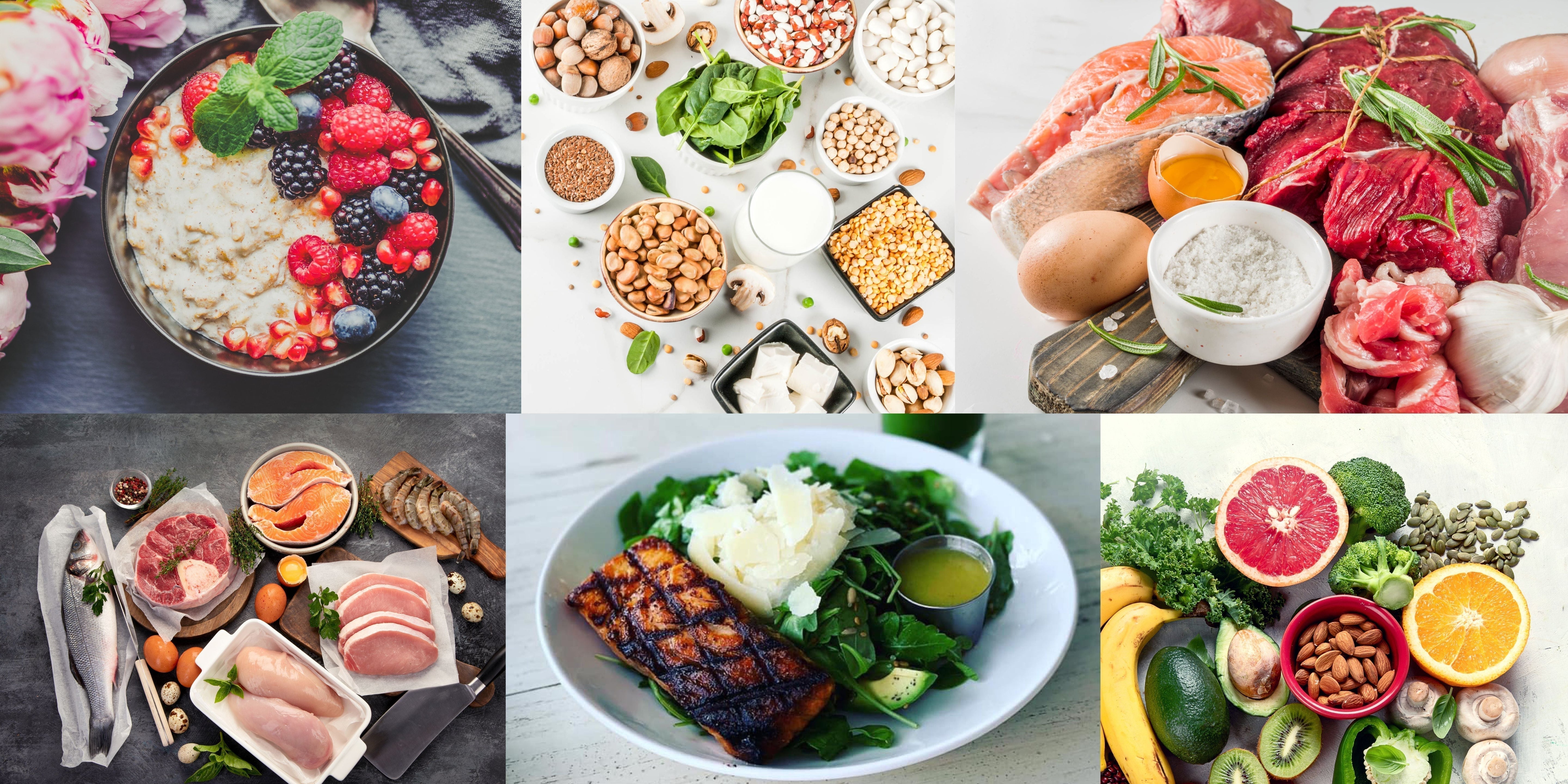Diets have become their own religion these days. You don't have to look far on Instagram to see influencers extolling the virtues of their chosen diet and how it has cured X, Y, Z. Doctors go to war on YouTube with research studies on why their diet is the "one." This has created a ton of confusion for the average person wanting to be healthy.
There once was a time where people just ate food, and it was pretty much as simple as that. Now understandably, the amount of stress our bodies are under and the vast array of chemicals, artificial light, EMFs, and other pollutants we're exposed to have wreaked havoc on the body and caused food sensitivities that didn't use to exist. Sometimes a diet is chosen to have a therapeutic effect by avoiding triggering foods.
In general, I am not about adhering to any one specific diet. I think each individual needs to find out what works for them and what doesn't and avoid any foods that don't sit well with them. A lot of people have issues with dairy (though quality matters and many do much better with goat, so sometimes it is a case of trying different animal's milk). Grains, beans, and certain root veggies, like potatoes, can be hard to digest with their complex starches and may need to be avoided indefinitely, or until the gut heals.
There are pros and cons to each diet that is promoted. Let's review some of the most popular diets with the most fanatic proponents.
Vegetarian
Vegetarians don't eat meat in general, though some will eat fish, called Pescatarians. Generally dairy is still included, which is helpful for filling key nutrient needs. Usually eggs are eaten as well, but it depends on the person. Grains, legumes, nuts, seeds, fruits and veggies are all eaten in abundance, with protein often being plant-based (i.e. soy).
Pros
- Lots of veggies and fruits for antioxidants
- Great source of fiber for detox
- Inclusion of dairy allows for minerals, fat-soluble vitamins, and a good source of protein
- Inclusion of eggs can also add a healthy source of complete protein, lecithin, choline and vitamin A
Cons
- Often lots of soy, which is estrogenic and rich in phytic acid, making it hard to digest. Fermented soy is a better option, but most soy is GMO
- Non-animal sources of protein lack all of the essential amino acids and need to be combined. It can be difficult to get enough protein.
- Can be starch (carb) heavy.
- Vitamin B12 and iron are usually lacking and often have to be supplemented
- There are still a lot of processed vegetarian foods, so the key is to eat whole foods as much as possible. Meatless alternatives can have unhealthy additives and flavorings to try to mimic the real thing, making it so you never truly know what you are consuming.
Vegan
Those who follow a vegan diet avoid anything that comes from or is produced by animals. That means no eggs, dairy, fish, meat or even honey.
Pros
- For those with difficulty digesting meat, it can provide the stomach a bit of a break
- Can be cleansing/detoxing by eliminating processed foods in exchange for more whole foods, though processed foods could still be consumed.
Cons
- Long term lack of eating meat will lead to less production of stomach acid, making any meat that may be reintroduced in the future very difficult to digest
- Getting enough protein, vitamin B12 and iron is still a problem, as mentioned above with a vegetarian diet
- Lack of any dairy or eggs will further limit pre-formed fat-soluble vitamins that are easily found in these foods, like vitamin A, as well as may limit sources of calcium
- Lots of soy can be an issue, for the reasons mentioned earlier
Keto
The keto diet is a high fat, low carb diet (50 grams or less of carbs per day) that started as a medical diet to manage seizures and help get the body in ketosis, where fat is burned instead of sugar (glucose). However, in more recent years, it has been touted as a weight loss tool and overall healthy diet for health improvement. In many cases, popular advocates for the keto diet consume much more protein than the original medical diet included, skewing the overall macro percentages that are supposed to be around 70% of fat to be much lower.
Pros
- Eating animal fats from healthy grass-fed, pasture-raised animals, can be a good source of fat-soluble vitamins.
- Fat is satiating and can reduce hunger, if excessive hunger is an issue.
- Limiting carbs can be helpful for those struggling with insulin resistance and blood sugar issues, at least in the beginning.
Cons
- Keto lacks adequate veggies and fruits in the name of limiting carbs, limiting antioxidants which fight free radicals and key vitamins that generally aren't available in meat, like vitamin C.
- If someone has avoided fat in the past, the fast introduction of lots of fat may overwhelm the gallbladder, which is tasked with breaking down fats.
- Initial weight loss is often water weight because when you are eating carbs, they help the body to retain water.
- Lack of adequate carbs can be stressful on the body over time, forcing the adrenals and liver to work harder to make its own glucose since it isn't coming in dietarily. Carbs are helpful for the conversion of inactive thyroid hormone (T4) to the active thryoid hormone (T3), so some are concerned with the effect on the thyroid over time.
Carnivore
Carnivore involves only eating meat (no fruits, vegetables, grains, legumes, nuts or seeds). Generally the focus is on various cuts, but seems to include a lot of beef and steaks. Animal fats like butter and tallow are used heavily. The variety of foods eaten are overall very small.
Pros
- Good source of B12, iron, and protein
- Organ meats are great sources of nutrients, including vitamin A
- Animal foods are more building up of the body, where veggies can be more cleansing
Cons
- There may be concern of too much vitamin A if organ meats are predominant
- Lack of fiber, which not only helps the passage of stool, but also binds toxins and removes them from the body, as well as provides a source of prebiotics to nurture good bacteria (probiotics) in the colon, which play many roles in the body (including the production of B-vitamins and vitamin K).
- If only eating muscle meats and neglecting more collagen rich cuts or bone broth/meat stock, the high methionine content of muscle meats can be more inflammatory without the anti-inflammatory and more calming nature of the amino acid glycine, rich in collagen cuts.
- Minerals and vitamins may be lacking from the exclusion of fruits and veggies, especially vitamin C and potassium.
Animal-Based
Animal-based is seen as a modification to the carnivore diet with the inclusion of more carb-rich foods like lots of fruits and honey to help support energy levels, hydration and electrolyte retention. Veggies are pretty limited due to the concern of oxalates, phytates, lectins and goitrogens that can be present. The diet still includes lots of various cuts of meats, usually beef with primarily hamburger, steaks, and other beef cuts, including organ meats.
Pros
- Good source of B12, iron, and protein
- Organ meats are great sources of nutrients, including vitamin A
- The inclusion of more carbs (some people eat 200+ grams of carbs a day) helps to maintain better electrolyte status, reduce the burden on the adrenals, better support optimal thyroid health, and supply more energy.
- More vitamins and minerals are included from the increase in fresh fruits and dairy
Cons
- There may be concern of too much vitamin A if organ meats are predominant
- Strict animal-based followers aren't as big on veggies as they are fruits, which can leave out important antioxidants, like sulforaphane in broccoli. A lot of people do better with slower digesting veggies without so much of a glucose hit from the fruit.
- Overall variety might be more limited, and if fruit isn't in season, you are relying on fruit grown from far away that may have been picked long before it was truly ripe, limiting nutrients.
Low-Fat
While a low-fat or fat-free diet isn't really "in" nowadays, they were once very popular. It basically involves avoiding all forms of fat and can lead to the inclusion of more processed foods marked as "fat-free". The original belief is that eating fat makes you fat, so avoiding/limiting fat will help you lose weight, which isn't true.
Pros
- Avoids highly processed seed oils that are in just about everything now a days and contain too much omega-6, making these oils pro-inflammatory.
Cons
- We need fat to absorb fat-soluble vitamins, like vitamins A, D, E, and K. These are important for skin, eye health, immunity and bone structure.
- Fat is satiating (helps keep you full) and tastes good. When fat is removed, lots of sugars and flavorings are typically added to make the food more palatable, adding more carbs and additives than the body can handle and may contribute to poor insulin regulation.
- Fat is what bile is made out of. You need healthy fats to make healthy bile, which is what helps break down fat in the small intestines. When you go fat-free, the bile can thicken and harden in the gallbladder, leading to gallbladder issues.
Whole 30
Not technically a diet, as the Whole 30 is meant to be a 30-day elimination protocol, the Whole 30 was first released in 2009 and has become a "cult" favorite. Many of the foods we crave and eat are due to our habits. The Whole 30 aims to break us of habits and cravings in order to improve our relationship with food.
Pros
- Centered around whole food sources; meat, produce, nuts, seeds, and healthy fats.
- Short term elimination of foods with high inflammatory potential can be helpful for determining food sensitivities.
- Slow and deliberate food reintroduction allows you to identify foods to avoid long-term.
- Omnivore and vegetarian options.
- Promotes building better habits, a healthy relationship with food, and achieving "food freedom."
Cons
- The elimination of dairy, sugar, grains, alcohol, and legumes can lead to cravings.
- This "diet" is not meant to last forever.
- Lack of flexibility. Due to the strict nature of the 30-day elimination phase, the Whole 30 takes planning and prep time to do properly.
- For those who use protein powders to fuel their workouts, reliance on pea protein or other plant-based proteins aren't as appetizing and can be gut-disrupting for some.
There are many other diets not listed here, like AIP, Paleo, GAPS, Mediterranean, and more. A lot of these can be helpful and therapeutic in the short term. In general I think Paleo is one of the most balanced, especially with the inclusion of dairy, fruits and veggies, but sometimes lacks adequate starchy carbs for thyroid and adrenal health. If you tolerate grains, they can be a healthy inclusion in your diet and add variety. Plus who doesn't love a good traditional sourdough loaf of bread?
It comes down to doing your research and talking with your health care professional to find out what works for you. In general, try not to cut out food groups that are critical sources of vitamins and minerals.
💡 Have trouble digesting dairy? Check out this blog post.
💪 Do you avoid meat or have trouble digesting it and need some extra protein? Check out our easy-to-digest goat milk proteins.





Share:
The Parasympathetic State - The Key to Healing
The Healing Power of Goat Milk... For Dogs and Cats
4 comments
Thanks for the added info Ashleigh! I actually have never heard that about the pepper and tomato skins, but good to know!
It’s genetic and age. Some people can digest anything and others cannot. My dad had digestion problems after age 40 and so did I. I am in my 70’s and eat a simple bland diet. I like your goat milk mineral whey too.
I hear this all the time, nuts and seeds are good for you. They are! However, only if they are sprouted or soaked. Mother Nature produces these plants to propagate itself. Not to feed us. But we have a brain. We can get around the chemicals they exude to stop us from pillaging their offspring. They can’t run away! So, they give off toxic chemicals. We remove these chemicals by soaking and or sprouting. Did you know that eating the skin of tomatoes is not good for you? A rodent knows this. I left a tomato on a table. The next day there was a hole in the tomato with a pile of its skin right beside it. My husband thought our daughter did that. But I told him right away that was a rodent. I also told him to keep the window in the kitchen closed at night. ……….sigh. btw. stop eating peppers with the skin on. Roast it off. Same concept.
Absolutely Great info!